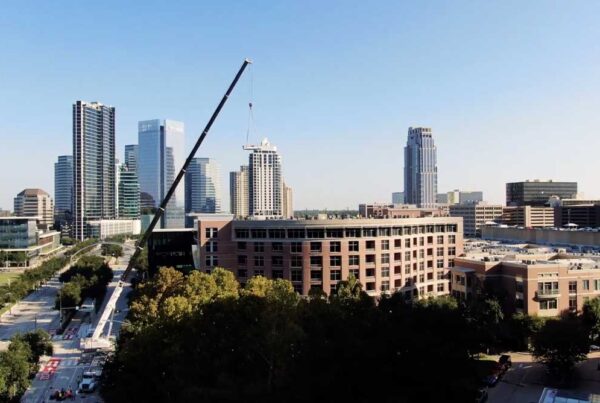Homeowners’ Associations (HOA) and Condo Association Boards are pillars of community organization and governance. Yet, despite their fundamental roles, many HOA Board training failed to address the systemic dysfunctions that can challenge their integrity and effectiveness. In this article, we will explore seven prevalent dysfunctions, unpacking their nuances and offering insights into their consequences. Before you make your next year’s “to do” list- be sure to make a “stop doing” list if you want to have any chance of making progress. HOA Board training aimed at fixing the common dysfunctions of HOA Boards should be your number one priority going into the new year and will give you a better return on your time than any to-do list can. Adopting best practices for HOA board management will help your community thrive.
Over our two decades of experience, RISE Association Management Group has seen common patterns emerge within volunteer boards. In this article, we will explore seven prevalent dysfunctions, unpacking their nuances and offering insights into their consequences. And we’ll take a look at how the unique RISE Operating System combats these dysfunctions.
1. Ambiguous Power Dynamics: Titles vs. Real Influence
At the core of many HOAs is a structure that, ironically, lacks a clear hierarchical power dynamic. Formal titles such as “Board President” or “Vice President” exist, but they often lack the authority one might expect. So, what’s the problem?
Without a defined hierarchy, the operations and decisions of the board can become influenced by personalities rather than structured roles. Those with louder voices or compelling personalities might find themselves unintentionally in the driver’s seat. This imbalance can lead to decisions made on the basis of charisma rather than factual merit or alignment with the community’s best interests.
Over time, this ambiguity can lead to decisions that may not serve the broader community’s needs. Imagine a situation where pressing infrastructure needs are ignored in favor of a more vocal member’s pet project, potentially leading to significant long-term community issues.
The Solution? HOA Management can lead board training and awareness of this issue. Then establish an operating system where there is a single liaison to management and a group session where the board votes on quarterly and annual priorities regularly will keep all parties aligned.
2. The Popularity Game: Making Decisions for Votes
Much like politicians, board members, being elected, often face the pressure of making decisions that will ensure their continued popularity and re-election. This approach can be detrimental when it conflicts with the community’s actual needs.
Take the example of raising assessments—a necessary measure to maintain infrastructure, communal areas, and other vital services. Despite its importance, raising assessments can be deeply unpopular, especially among residents on fixed incomes. The fear of backlash and potential unpopularity might deter boards from making such decisions, even when they’re crucial for the community’s long-term well-being. The ramifications of continually delaying such decisions can lead to significant financial strains and even community-wide crises.
The Solution? Once again awareness is the starting point and HOA Management companies should help lead the discussion. These pressures can unknowingly influence a Board if not properly identified up front. Then reminders of the scope of the Association’s responsibility are helpful: enforce the governing documents, provide for the care and longevity of the common infrastructure, and enhance or maintain values. Sticking with these focal points helps to keep Boards focused.
3. Drifting Along: The Path of Least Resistance
The inclination to avoid tough decisions or confrontation can result in boards choosing the path of least resistance. But constantly choosing the “easy path” can have long-term repercussions.
Imagine an HOA that continually delays essential maintenance or upgrades to avoid temporary inconveniences or expenses. This approach can lead to a compounded list of repairs, eventually culminating in an overwhelming and costly project. Such situations can result in increased tensions within the community, with members feeling the pinch of sudden, hefty financial assessments.
The Solution? Create a safe environment where constructive conflict is invited. The Board President can act as a moderator to ask questions of various perspectives, especially those who are often the quietest, and ensure that is isn’t just the loudest points are heard. The moderators ensures everyone is heard the group as a whole can make a decision with confidence that at minimum all perspectives were voiced.
4. Navigating the Misinformation Maze
In an era where information spreads rapidly, HOAs are not immune to the challenges of misinformation. Every HOA faces the daunting challenge of misinformation. Potentially more damaging, those individuals who sound credible, regardless of the truth of their statements, often gain undue influence.
Without structured fact-checking mechanisms, any member’s opinion, if presented convincingly, can rapidly reshape community perceptions and influence board decisions.
Consider a community facing a critical structural repair. If misinformation about the repair’s necessity spreads, the community might become divided, with some members resisting the associated costs. Such situations not only impede essential repairs but can also foster a climate of distrust and skepticism.
The solution? Use facts, documentation, experts as much as possible. Moderate your community forums to ensure that intentional misinformation, tin hat conspiracy theories, and other intentionally disruptive posts are removed or addressed. The Board must ensure credible information is discernable from rumor or opinions and rather than simply trust that most owners can tell the difference- they must ensure that the narrative is filled with truthful and responsible information.
5. Remember- You're a Public Servant.
One of the core principles of being on an HOA or condo board should be the spirit of public service. This isn’t a place for egos or control maniacs. However, not all members embrace this ethos. Many want to be involved in condominium association management because of personal agendas, to seek control or to further personal interests. Such motivations can lead to decisions that don’t necessarily align with the broader community’s interests, creating friction and potential long-term setbacks.
For instance, a board member might push for renovations or changes that align more with personal preferences than the community’s actual needs. Over time, such decisions can erode trust and create a chasm between board members and the community they serve.
The solution? Start with a board pledge or code of conduct. Make the rules known to all who come aboard that this position is about the common good, not the individual. Be willing to address misalignment with these principles.
6. The Expertise Conundrum: Trusting the Pros
An effective HOA or condo board requires a blend of community insight and professional expertise. Boards are often comprised of well-meaning volunteers who might lack the detailed knowledge needed for some decisions. Herein lies a significant dysfunction: failing to heed expert advice.
Whether it’s legal counsel, structural engineers, or property management professionals, experts provide guidance based on years of experience and training. Ignoring or distrusting this advice can lead to costly mistakes. On the flip side, experts must also remain open to community insights, understanding that residents provide a ground-level perspective that’s equally invaluable.
The solution? As a Board you hire and fire your experts which means you can simply fire experts who disagree with you. This is, of course, a horrible practice in that it promotes obsequious behavior which is likely to lead the Board and the community down perilous paths so you must ensure your service providers know it is ok to disagree. Reward those who provide unpopular opinions- it will save your association, and perhaps you personally, a lot of money and grief.
7. Operational Hurdles: Effective Execution and Communication
Having clear goals and decisions is half the battle; effective execution is the other. Many boards falter in translating decisions into action. Whether it’s due to resource constraints, poor planning, or communication gaps, poor execution can render even the best decisions ineffective.
Moreover, in the drive to achieve goals, boards might overextend, leading to burnout or hastily completed tasks. Effective communication, paced project execution, and continuous feedback loops are essential for any HOA or condo board aiming to make a meaningful impact.
The solution? See item #1 above- every 90 days have a goal setting meeting where management and the Board alignment on specific objectives, timeframes, and check in regularly with each other. These goals should not change unless there is an emergency and the groups work together for 90 days to complete all items on this list. After 90 days the list is reset, incomplete items carry over, and new items are added.
Conclusion: The Way Forward
The challenges facing HOA and Condo Association Boards are multifaceted. HOA Board training to help navigate the complexities of power dynamics to ensure effective execution is critical to your HOA Board of Director’s success. Recognizing these dysfunctions is the first step. The next is proactive engagement, continuous learning, and fostering a culture of trust and collaboration with your HOA/COA management company. Only then can these boards truly serve their communities effectively, ensuring harmony, growth, and sustainability.
Does this sound like something your board aspires to achieve? Visit our media library for more helpful articles and videos by clicking here. RISE Association Management Group is Houston’s leader in HOA, High rise condominium, and master planned community association management. Contact us at [email protected] or 713-936-9200 and let’s talk about it. Together we RISE.






